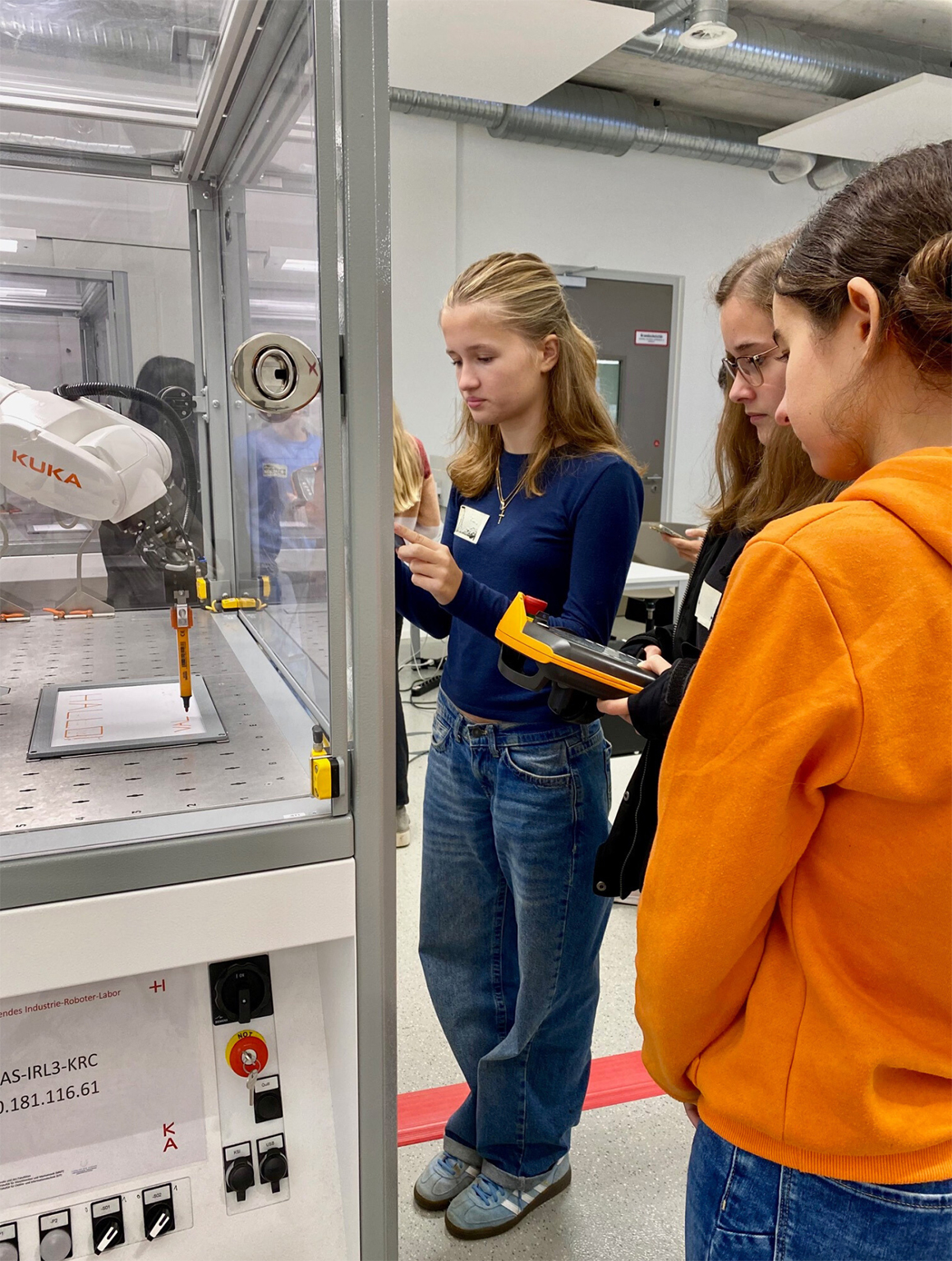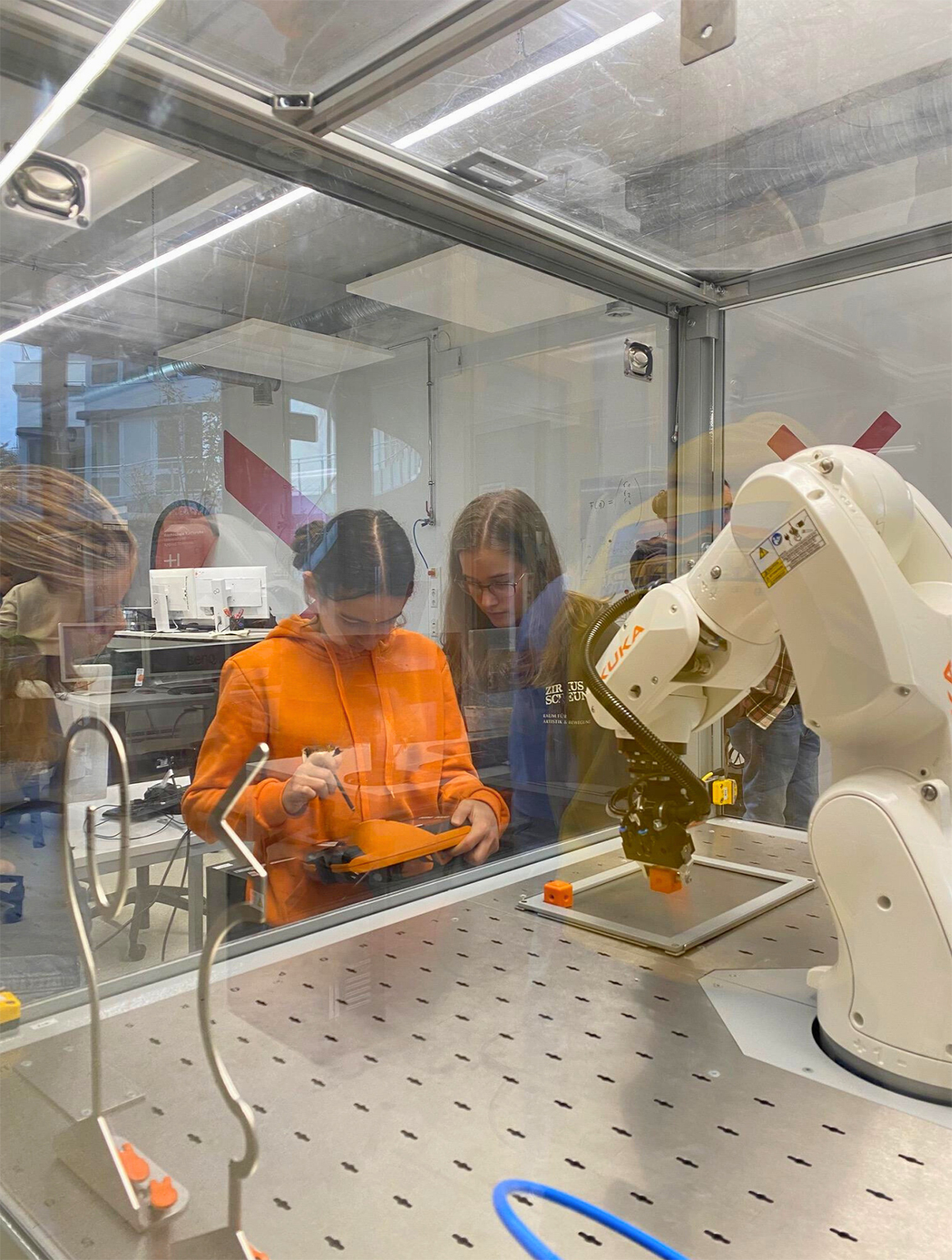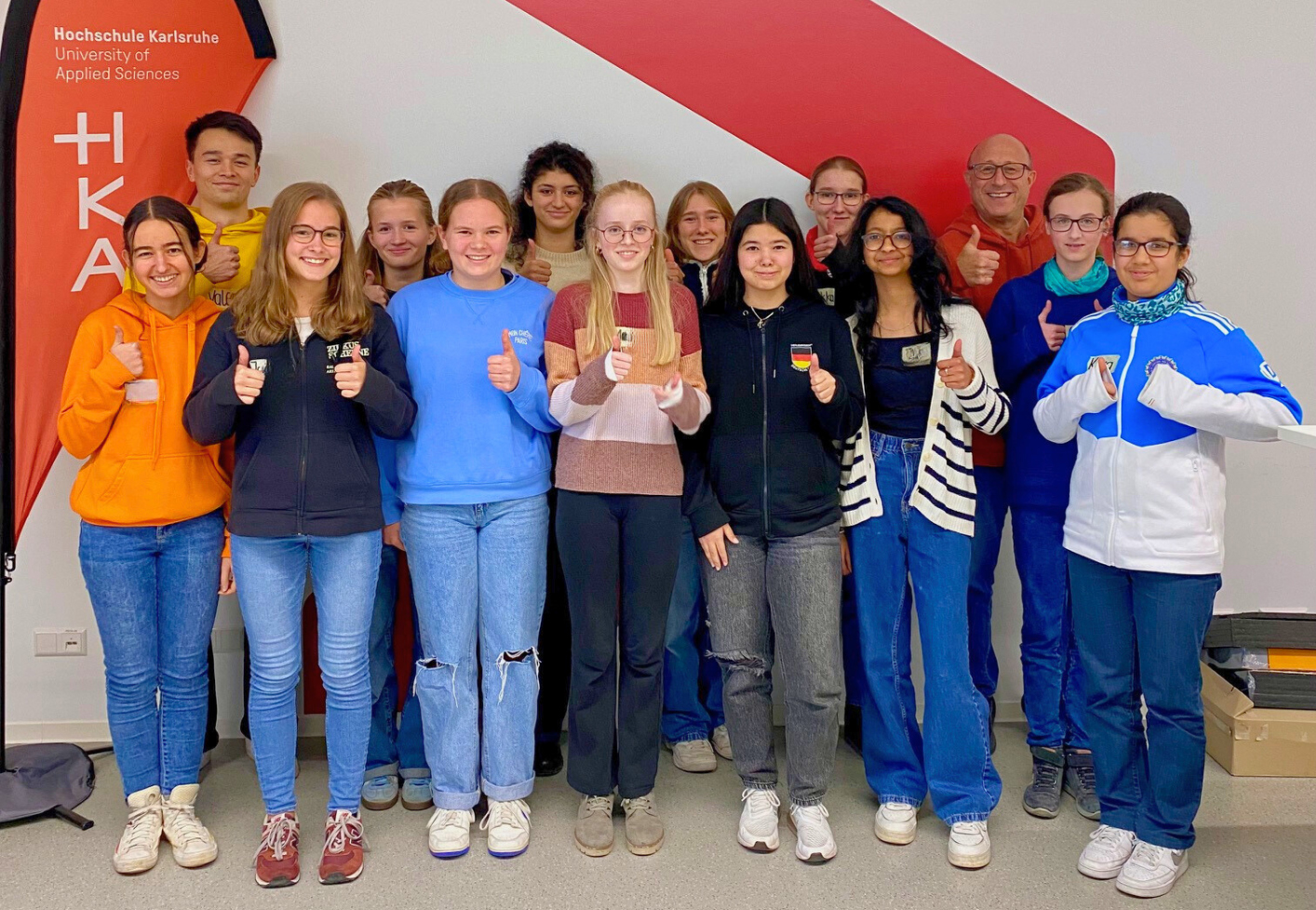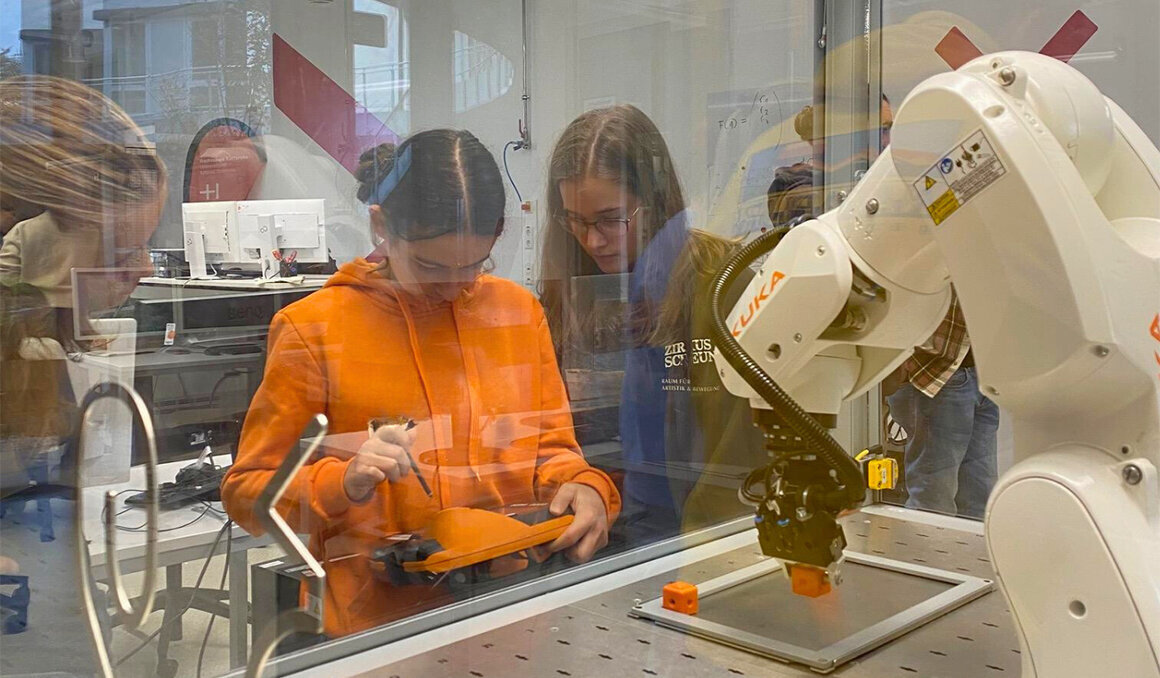November 20, 2024
The Institute of Robotics & Autonomous Systems (IRAS) at Karlsruhe University of Applied Sciences (HKA) and the Female Pioneer Network have joined forces to get the next generation of female engineers interested in STEM subjects (science, technology, engineering and mathematics). The objective: to give young women an insight into technical professions at an early age and to encourage them to take up these careers.
A day in the robotics lab - learning like a pro!
The workshop at IRAS was fully booked within just 90 minutes. Ten girls had the chance to explore the IRAS robotics laboratory and get hands-on experience with its cutting-edge technology. To start with, the IRAS team gave the participants a tour of the lab, where they were shown various robots - including the well-known “Spot mini”, a versatile quadruped with impressive agility that is commonly used for exploration and tasks in challenging environments.
This introduction was followed by a crash course in robotics programming: the participants were introduced to the three-dimensional coordinate system using KUKA training cells and were able to program their own initial motion sequences. The aim was to get the robot arm to write their name - a seemingly simple but challenging task that required patience, precision and a creative understanding of the interplay between the movement axes. The girls enthusiastically programmed and experimented with the controls to get the arm into the right position. The exchange of ideas was particularly motivating and small mistakes were solved as a team, which was a real “aha” experience for many.
The highlight of the day was an introduction to human-robot collaboration through the so-called “CrêpeBot”, a robot designed to prepare crêpes in collaboration with a human. This hands-on demonstration showcased the fundamental aspects of safe interaction between humans and machines, illustrating how technical precision can be integrated into everyday tasks. Participants gained an insight into the safety mechanisms and protocols essential for enabling robots to work in a human-centric environment. By bridging robotics with a familiar activity, this experience offered a fresh perspective on how robots can serve as reliable partners and helpers in various aspects of daily life.
After a shared lunch break, during which participants exchanged ideas about their study and career aspirations, it was time to put their self-programmed robot controllers to the test. Errors were identified, lines of code adapted and new approaches explored until the robot arm was finally able to write the participants’ names. The girls’ feedback was overwhelmingly positive, with many expressing that the hands-on interaction with the KUKA training cells and the CrêpeBot had made a particularly lasting impression.
Female Pioneer Network: A network for the STEM women of tomorrow
The Female Pioneer Network is a free, extracurricular program designed for female students in the Karlsruhe area from the 9th grade onward who are interested in STEM. This initiative provides a platform for participants to exchange ideas, receive guidance from experienced mentors, and develop their interests and skills through hands-on workshops. The aim is to increase the visibility of young women in technical professions and to facilitate early access to STEM fields.
Why IRAS relies on cooperation
IRAS is heavily involved in STEM education as part of the EU project Robot Hub Academy and aims to inspire young women to pursue technical careers. In collaboration with the Female Pioneer Network, the institute aims is to reduce barriers and provide playful approaches to robotics. The partnership seeks to spark enthusiasm for STEM fields and actively promote the representation of women in technical professions.



